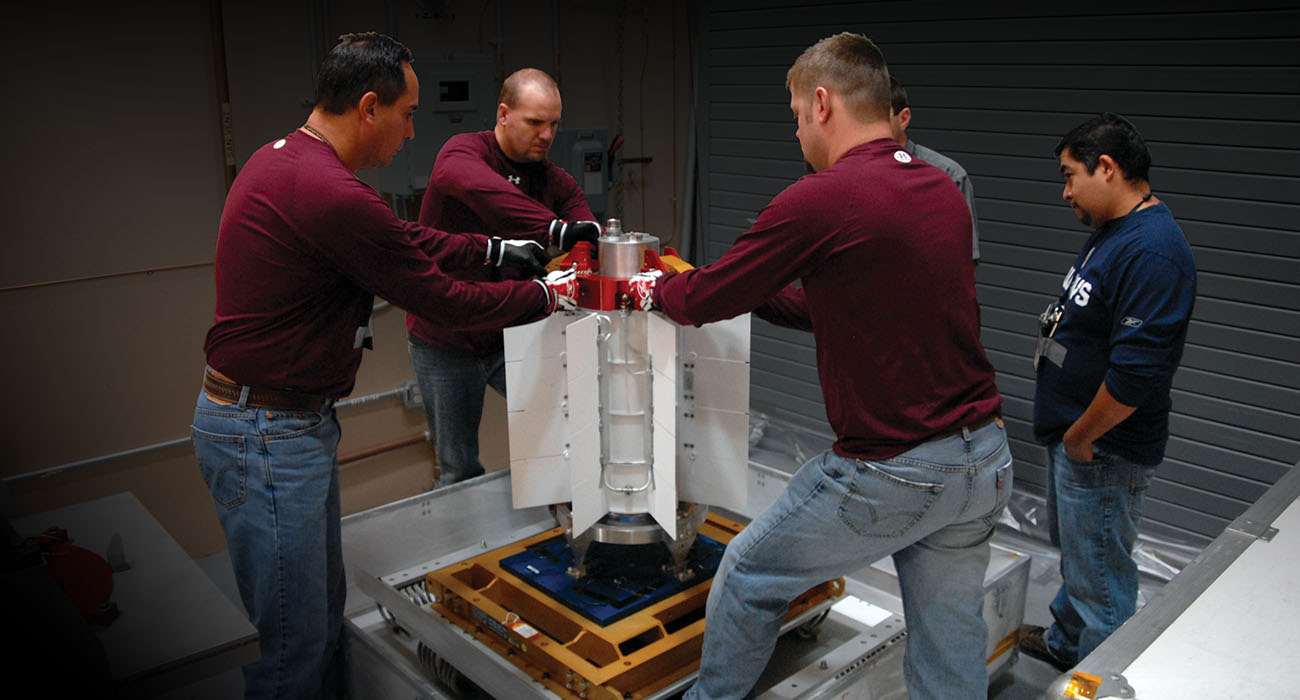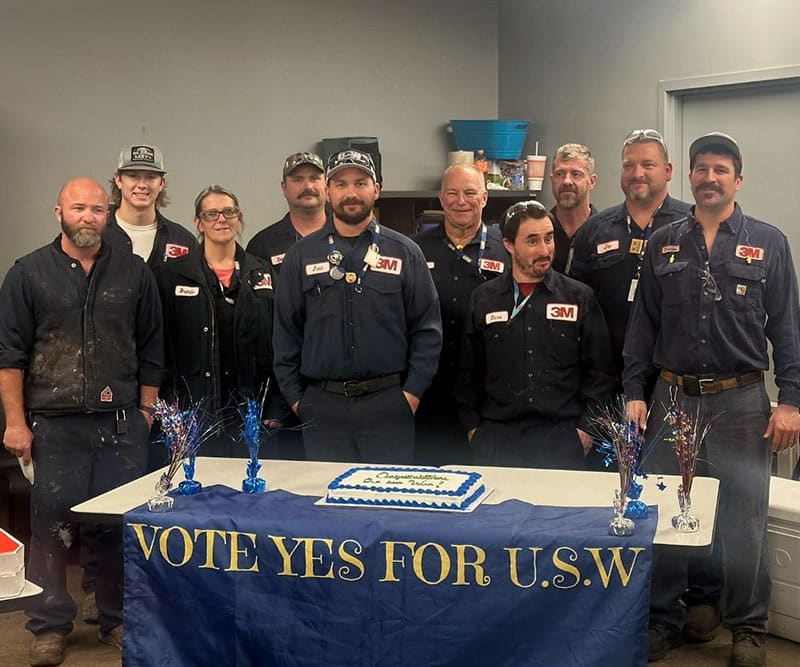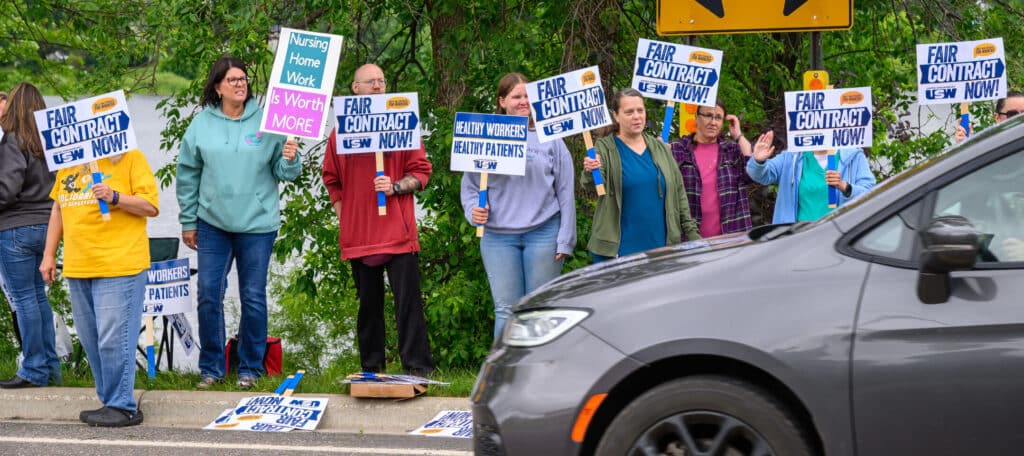USW Members Support Space Exploration
Nine highly skilled USW members at the Department of Energy’s Idaho National Laboratory (INL) use their expertise to help propel America’s spacecraft and rover systems across the solar system.
The members of Local 12-652 play a critical role making sophisticated tooling and producing secure shipping for the radioisotope power system, a generator with a radioactive power source, and the heat sources needed to fuel it. Eight of them work as machinists and one as a welder in the machine shop at the Materials and Fuels Complex in support of the Space and Security Power Systems Facility.
The power system runs on plutonium-238, which gives off a steady supply of heat as it decays. It’s a reliable energy source that lasts for decades allowing scientists to operate spacecraft or rover systems such as scientific instruments, robotic arms, computers, radio and drive systems.
These generators currently power the New Horizons mission to Pluto, and the Mars Science Laboratory’s Curiosity and Mars 2020’s Perseverance rovers. These devices provide the onboard heat and electrical power for NASA’s planetary missions.

Pictured: Employees test the latest radioisotope power system, called the multi-mission radioisotope thermoelectric generator, for the Mars 2020 Perseverance rover. (Department of Energy)
“It’s pretty exciting being a part of the Mars rover and space,” said Local 12-652 member Brandon Ferguson. “I can tell my family what I’ve done, and they can see it on TV.”
The USW members build specific fixtures, like the casks that ship the power systems to NASA in Florida and the heat sources needed to fuel the power systems. USW members also perform preventative and corrective maintenance.
Dr. Steve Johnson, director of Space Nuclear Systems and Isotope Technologies Division, said the space generator program involves “a great team effort and everyone contributes to the project. We count on the USW members.”
Precision required
Precision work is key to the tools the USW members create.
“We work within tight tolerances on the tools we make,” said Ferguson, an 11-year INL veteran who is a machinist and runs a dual spindle lathe with live tooling. “The tolerances we deal with are like .0005 of an inch. It takes a lot of experience to hold this tolerance.”
The machinists program and set up their own equipment and run a part from start to finish. Usually they work on one or two intricate parts on non-typical and exotic alloyed materials and non-metallic material such as graphite and plastics.
Ferguson said it is easy to make a mistake while using these materials, and they cannot be reused if an error occurs. He said the diversity of material is a challenge, but also rewarding.
Welding also must be precise. It requires exceptional ability to weld non-typical and exotic materials to the required specifications. Knowing the proper distance, angle, speed, and heat to use are essential.
Ferguson and his coworkers collaborate with the engineers, who answer their questions and help them solve problems. They also suggest changes in designs for parts to make them more precise and easier to produce.
“We take pride in what we do,” Ferguson said, “and strive to be the best for all the engineering groups we work with.”
By clicking Sign Up you're confirming that you agree with our Terms and Conditions.
Recent News Articles
Want to Learn More?
See how the USW is making a real difference in our communities and our workplaces.

